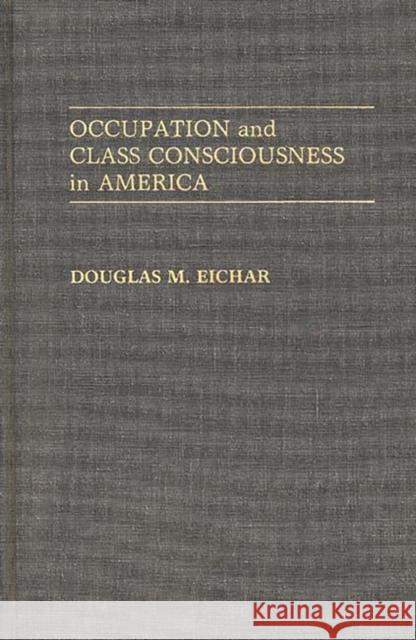Occupation and Class Consciousness in America » książka
Occupation and Class Consciousness in America
ISBN-13: 9780313261114 / Angielski / Twarda / 1989 / 148 str.
Eichar takes a new conceptual and empirical approach to the question of class consciousness. Drawing on recent work in industrial psychology, as well as organization and management theory, he assesses the impact of occupation on working class consciousness and political orientation in terms of the content of work experience. He uses job characteristic theory to clarify the relationship between occupation and class to test whether certain job characteristics influence the class consciousness and political orientation of workers.
Eichar begins by establishing theoretical distinctions relating to occupation and class. He next looks at basic job characteristics and examines occupational self-direction and its relation to class consciousness. From a review of recent literature, the author develops a set of hypotheses relating to the impact of occupational self-direction and alienation on class consciousness. He tests these hypotheses empirically using job information from respondents and descriptions of job characteristics. Interpreting his findings, Eichar points out significant differences in the impact of alienation and occupational self-direction depending on the level of class consciousness. Offering solid empirical analysis and careful review of the new class theories, as well as more traditional views of the relationship between work and political attitudes, this study will be of interest in political sociology, Marxist studies, industrial psychology, management theory, and related fields.











